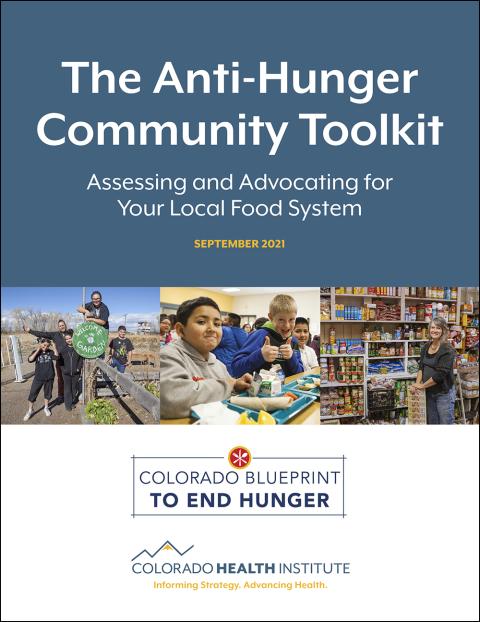Community members across the state are working toward a Colorado where all people have access to affordable, healthy food in their communities. Achieving this vision requires making changes to our food systems at the local, state, and federal levels.
This work is more important than ever. In 2019, before the COVID-19 pandemic, one in 10 Coloradans experienced food insecurity, according to the Colorado Health Access Survey. And the pandemic has had a staggering impact on Colorado households. According to Hunger Free Colorado, in April 2021, 1 in 3 Coloradans were food insecure, with people of color and families with children most affected.
To support this work, the Colorado Blueprint to End Hunger partnered with the Colorado Health Institute to create The Anti-Hunger Community Toolkit. This toolkit aims to support community leaders across Colorado as they assess the strengths and gaps in their local food systems, and advocate for change by building public awareness and political will within communities.
This toolkit serves as an equity-centered guide for getting started, learning from the community, and taking action to improve local food systems. The guide highlights helpful resources and effective anti-hunger programs, partnerships, and policies across Colorado. It is designed for community leaders who care about their local food system. These might include community advocates and organizers, staff or volunteers at community-based organizations, and other people who fight hunger in their neighborhoods.
Read the full report or visit the Blueprint to End Hunger website for more information.
What is the Anti-Hunger Community Toolkit?
The Anti-Hunger Community Toolkit is a resource for community leaders. It helps leaders assess and advocate for change in their local food system by building the public awareness and political will that is necessary for change. To assess local food systems, community leaders must:
1. Get started by building a team to guide the work.
2. Ask your community what the biggest strengths and needs are in your local food system.
3. Take action by determining goals, developing strategies, identifying key players, and communicating your message to key decision-makers in your community.


